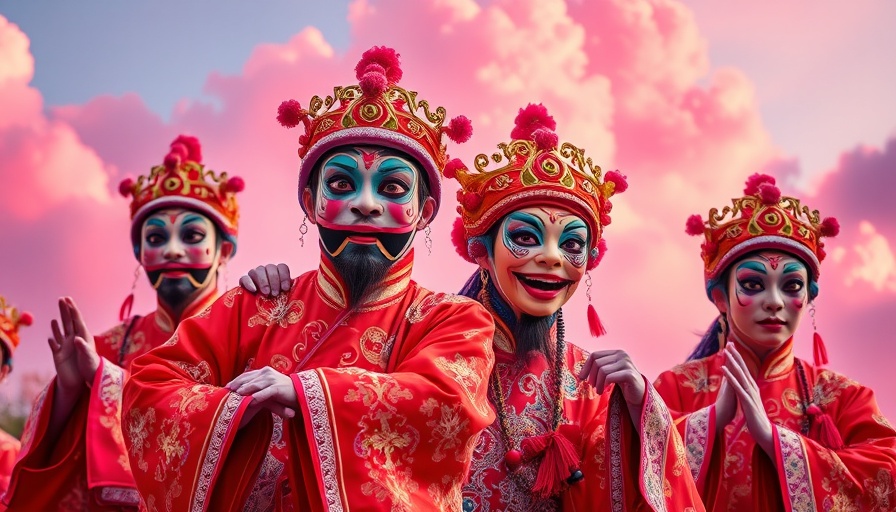
A Cultural Journey: The Arrival of Peking Opera in Austin
Austin is set to welcome an exquisite slice of traditional Chinese theater as the renowned Taipei Li-Yuan Peking Opera troupe embarks on a two-day performance event. Scheduled for July 26 and 27 at the Long Center, this cultural highlight promises to captivate enthusiasts and newcomers alike. With its rich history dating back to 1790, Peking Opera has evolved into a vibrant and theatrical expression, distinctively colored by the rich cultural tapestry of Beijing.
What to Expect: A Unique Theatrical Experience
The performances will showcase a variety of stories that not only entertain but also convey profound themes. The first evening features “Three Excerpts of Peking Opera,” where audiences will witness a tragic love story, a lighthearted romance, and a tale intertwining forbidden love. The second day, “Monkey King Fights the Skeleton Demon,” promises an adventurous escapade filled with action and comedic elements, demonstrating the essence of heroism and camaraderie.
Buddhist Influence and Community Engagement
Organized by the Buddha's Light International Association (BLIA) alongside local partners such as the Xiang Yun Temple and the University of Texas Chinese Student Association, this event enhances community spirit and understanding among diverse cultural backgrounds. Lily Zhou, representing BLIA, emphasizes the performance as a catalyst for mutual respect and appreciation. This is a unique opportunity for Austinites to engage deeply with a facet of Chinese culture that symbolizes a living legacy.
Bridging Cultures Through Art
Venerable JueJi from Xiang Yun Temple articulates the event’s significance, stating, “As Peking Opera graces the stage, let art become the bridge that unites cultures.” This sentiment resonates with many, as the enriching experience transcends mere entertainment; it fosters a deeper understanding of the narratives that define another civilization, echoing Austin’s commitment to inclusivity and diversity.
A Snapshot of Peking Opera's Rich History
Peking Opera blends music, vocal performance, mime, dance, and acrobatics in a kaleidoscope of colors and sounds. Originally performed for the emperor's court, this art form became widely popular among the public in the 19th century. Today, it remains an intricately stylized performance, representing not just Beijing’s culture but also a global artistic narrative that has been adapted and loved by audiences around the world.
Attending the Event: What You Need to Know
Located at Dell Hall, ticket information is readily available for those interested in exploring this artistic endeavor. Given the allure of the Peking Opera and its significant impact on cultural literacy, attendees are encouraged to seize this chance to witness live performances that are sure to leave an indelible mark in Austin’s cultural landscape.
How This Event Reflects Austin’s Lifestyle
Austin, known for its vibrant arts scene and diverse lifestyle, is the perfect backdrop for this invitational performance. The blend of local and international culture appeals not only to arts aficionados but also to those intrigued by the novelty of exploring unique lifestyles through performances. Whether you are a long-time Austinite or a newcomer to the city, immersing yourself in such events contributes to a deeper understanding of global cultures and enhances community ties.
Community Impact and Personal Reflections
As Austin continues to grow and evolve, events like the Peking Opera not only enrich its cultural scene but also foster connections amongst its residents. The shared experience of watching a poignant storyline unfold before you has the power to evoke emotions, provoke thoughts, and inspire conversations long after the curtains fall. Such experiences remind us of our shared humanity, inviting audiences to reflect on their own stories and backgrounds.
As we look forward to the performances, we invite you to engage with this opportunity. Let the vibrant tales of the Peking Opera resonate with you and foster a greater appreciation for art as a medium of cultural exchange.
 Add Element
Add Element  Add Row
Add Row 



Write A Comment